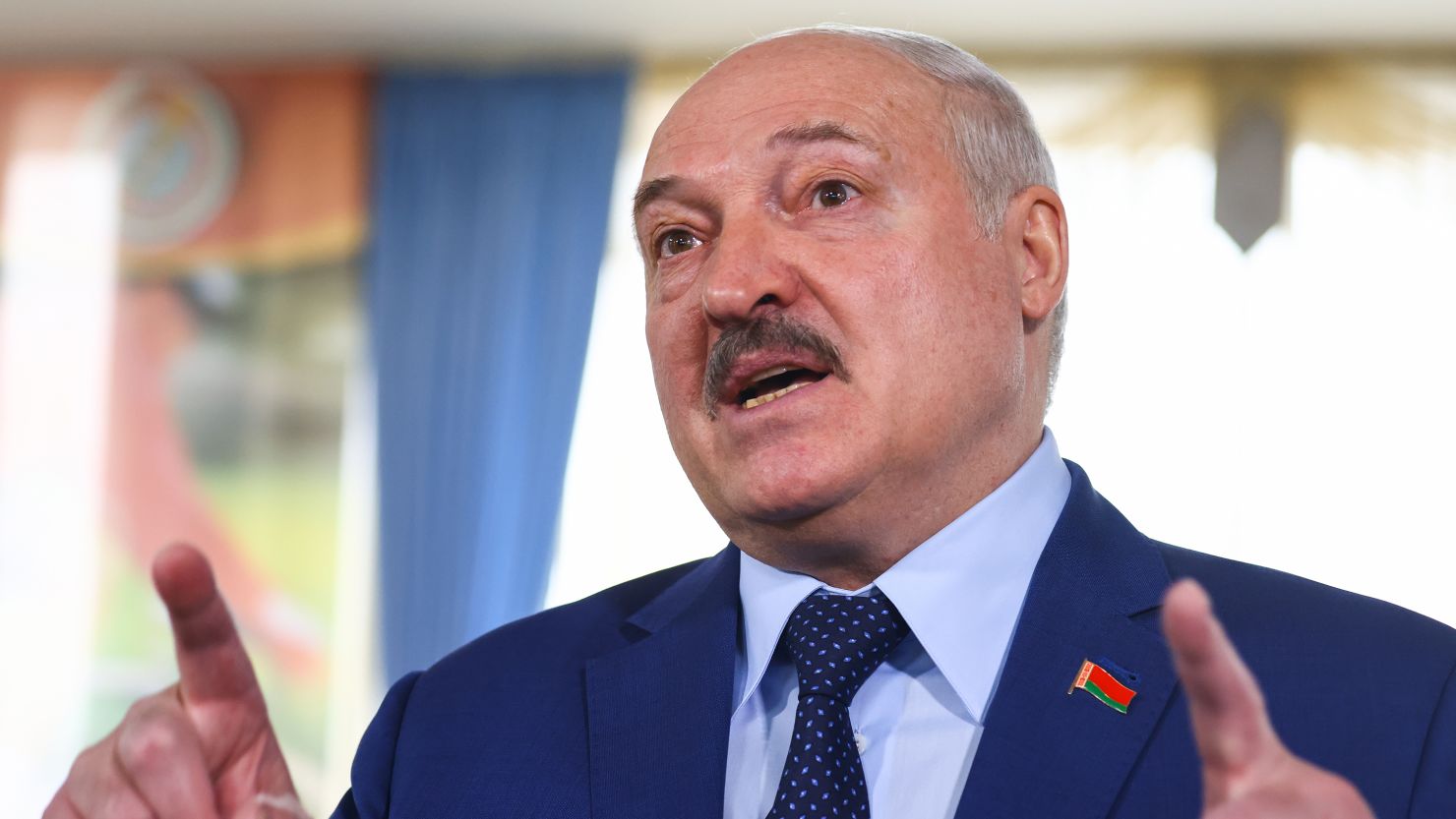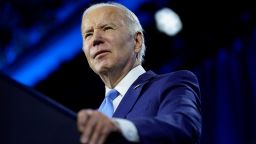The United States applied new sanctions Tuesday on Belarusian President Alexander Lukashenko, who has allied with Russia in its war on Ukraine.
A number of other Russians, including a judge, were also targeted with sanctions for human rights abuses, according to the US Treasury Department.
And the Biden administration targeted 11 Russian military leaders – some of whom have been involved in suppressing Russian protestors and dissent in occupied areas of Ukraine – with new sanctions.
In announcing the measures applied to military leaders, Secretary of State Antony Blinken said, “The Russian government has intensified a crackdown against its own citizens’ freedom of expression, including for members of the press, as well as freedom of association and peaceful assembly. Today in Russia, those who provide factual reporting on the invasion or criticize Putin face criminal charges.”
This action comes as the National Guard “has cracked down on Russian citizens who have taken to the streets to protest their government’s brutal campaign in Ukraine,” Blinken said, adding that the list of Russian military officials hit includes Viktor Zolotov, the head of the National Guard of Russia.
In Belarus, the country north of Ukraine that has played a key role aiding Russia’s attack, sanctions were applied to the country’s authoritarian leader as well as his wife, Halina. They would block their property and interests in the United States, and prohibit Americans from engaging in transactions with them.
“Today’s designations demonstrate the United States will continue to impose concrete and significant consequences for those who engage in corruption or are connected to gross violations of human rights,” said Office of Foreign Assets Control Director Andrea Gacki. “We condemn Russia’s attacks on humanitarian corridors in Ukraine and call on Russia to cease its unprovoked and brutal war against Ukraine.”
The US previously applied sanctions to members of Lukashenko’s family in December after a migrant crisis on Belarus’s border with Poland, which led to accusations of human rights abuses.
The US has previously targeted Belarus with sanctions for its role supporting the Russian invasion of Ukraine, including extending export control policies to Belarus and preventing diversion of tech and software to Russia through the country.
Russian troops were stationed in Belarus prior to the attack on Ukraine, which the two countries had claimed were for exercises. Using Belarus’ border has been strategically advantageous to Russia because its border with Ukraine is much closer to Kyiv than Russia’s, providing a shorter pathway for Russian troops to reach the Ukrainian capital.
The US announced in February that it was suspending operations at its embassy in Belarus. Lukashenko said last month that Belarusian troops could join the invasion “if it becomes necessary.”
In addition to the Lukashenkos, the US targeted four individuals involved in the death of whistleblower Sergei Magnitsky, who died in suspicious circumstances in 2009.
The State Department also announced new visa restrictions on 38 current and former Russian government officials believed to be involved in suppressing dissent in Russia and abroad; new sanctions on two of Russia’s Federal Security Service (FSB) officers; visa restrictions on six individuals involved in attacks on Chechen dissidents living in Europe; and visa restrictions on 25 individuals responsible for undermining democracy in Belarus.
“The world has been transfixed as Russia has perpetrated a premeditated, unprovoked, and unjustified attack on Ukraine. Russia’s further invasion of Ukraine has resulted in widespread human suffering and casualties, including the deaths of innocent civilians, including children. Today, the Department of State is continuing to impose severe costs on Russian military leaders,” the State Department fact sheet said.







